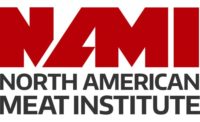U.S. grain farmers have a new incentive to transition from conventional to organic practices, and Bell & Evans banks on many making the change.
Premium poultry producer Bell & Evans is experiencing significant growth in its organic chicken program, increasing its need for U.S. grown organic-certified corn and soybeans used in its organic chicken feed. The family-owned producer finalized a long-term sourcing agreement with global ag leader Cargill to exclusively secure its organic grain and increase domestic organic grain supply. Under the agreement, Cargill will incentivize U.S. farmers to transition acreage from conventional to organic management through subsidized organic crop consulting services provided by organic pioneer Rodale Institute.
The Bell & Evans Organic Grain Initiative aims to transition 50,000 acres of U.S. corn and soybeans to certified organic production over the next five years. Rodale Institute brings more than seven decades of scientific organic agriculture research to the partnership, offering added value and security to farmers that participate. This is the largest market-financed organic grain transition program backed by science in the world, creating a model for the rest of the food industry.
Farmers with organic interest will benefit by the Bell & Evans U.S. Organic Grain Initiative because it eliminates their most vocalized organic-transition hurdles: knowing where to start, finding education and resources for successful organic land management, and a guaranteed market after the three-year transition period. Contracted growers will receive customized support to aid them through the transition including on-farm consultation, organic system planning, certification assistance, weed management guidance, crop rotation planning, recordkeeping guidance and inspection preparation. Cargill will offer market access for transition crops, and farmers are guaranteed a dedicated market for their certified organic grains through Bell & Evans.
“We want to establish trust, transparency and loyalty with our grain farmers for the success and longevity of the program,” said Bell & Evans Executive Vice President Margo Sechler. “The farmer wins from this partnership, as do Bell & Evans, Cargill, Rodale Institute and all Bell & Evans customers who pay a premium for our organic chicken and can trust they are getting true organic product.”
Only one percent of total U.S. acreage is certified organic, yet the organic food market is a growing $50 billion industry. National organic food sales rose 4.6% in 2019 according to the Organic Trade Association. In 2020, Bell & Evans experienced 25% growth in organic chicken sales and projects growth of 27% in 2021 and 17-20% each year after that, through 2024.
Bell & Evans’ Commitment to 100% U.S. Organic Grains, Growing Organic Program
In 2020, Bell & Evans raised more than 63 million chickens at its partner broiler farms. That number will increase by more than 50% in 2022 with completion of its New Organic Harvesting Facility this year. 100% of Bell & Evans chicks begin on organic-certified feed at its Organic Chicken Hatchery. Nearly 50% of those chickens continue to be raised organic on organic-certified feed on the farms.
Bell & Evans has been committed to sourcing 100% U.S. organic grains for its organic chicken feed since inception of its organic program in 2009. Bell & Evans is one of the largest U.S. organic grain buyers and cites control, traceability, and authenticity of the USDA organic-certified label as reasons for its commitment to domestic grain. That care and commitment to true organic chicken begins with authentic organic grains and extends all the way through Bell & Evans’ organic processes and facilities. 100% of Bell & Evans’ processing facilities are certified organic including its Hatchery and Rendering Facility, firsts in the world.
Bell & Evans aims to source 100% organic seeds for its organic grain in the long-term, an investment that will take their organic commitment to another level.
Cargill’s Support of Specialty Markets
Cargill, a long-time supplier partner to Bell & Evans, is uniquely positioned to help the company meet its growth projections through its robust specialty markets capability and extensive network of farmers.
“Cargill has a long history of providing growers with consistent access to new and emerging markets,” said Jeff Vassart, managing director for Cargill’s agricultural supply chain in North America. “We’re proud to partner with Bell & Evans and Rodale Institute to offer an innovative sourcing solution that not only helps to support their projected growth, but also can remove the barriers for farmers in their transition to organic and access to specialty grain markets.”
Rodale Institute’s Contracted Support and On-Farm Training
Rodale Institute, a Pennsylvania-based nonprofit dedicated to growing the regenerative organic movement, has been leading organic agriculture research, farmer training, and consumer education for over 70 years. Through this partnership with Bell & Evans and Cargill to increase domestic production of certified-organic corn and soybeans, Rodale Institute will provide the educational support and technical assistance to conventional farmers transitioning to organic through its Organic Crop Consulting Services.
Rodale Institute’s Organic Crop Consulting Services were established in 2019 through funding from the Pennsylvania Department of Agriculture. Rodale Institute’s crop consultants are currently working with more than 150 farmer clients around the U.S. to transition more than 25,000 acres to organic management. They focus on providing individualized advice and one-on-one mentorship for farmers seeking to transition to organic management including certification assistance, equipment, fertility, weed management or crop rotation advice, soil sample analyses and more.
“It has always been a part of Rodale Institute’s mission to help farmers transition to organic production,” said Sam Malriat, Director of Rodale Institute’s Organic Crop Consultancy. “Our decades of research and on-the-ground experience have shown us that organic agriculture is a robust and profitable system that can improve soil health. With this initiative, we can expand our support network and ensure that every farmer has the resources they need to be successful.”
Source: Bell & Evans





